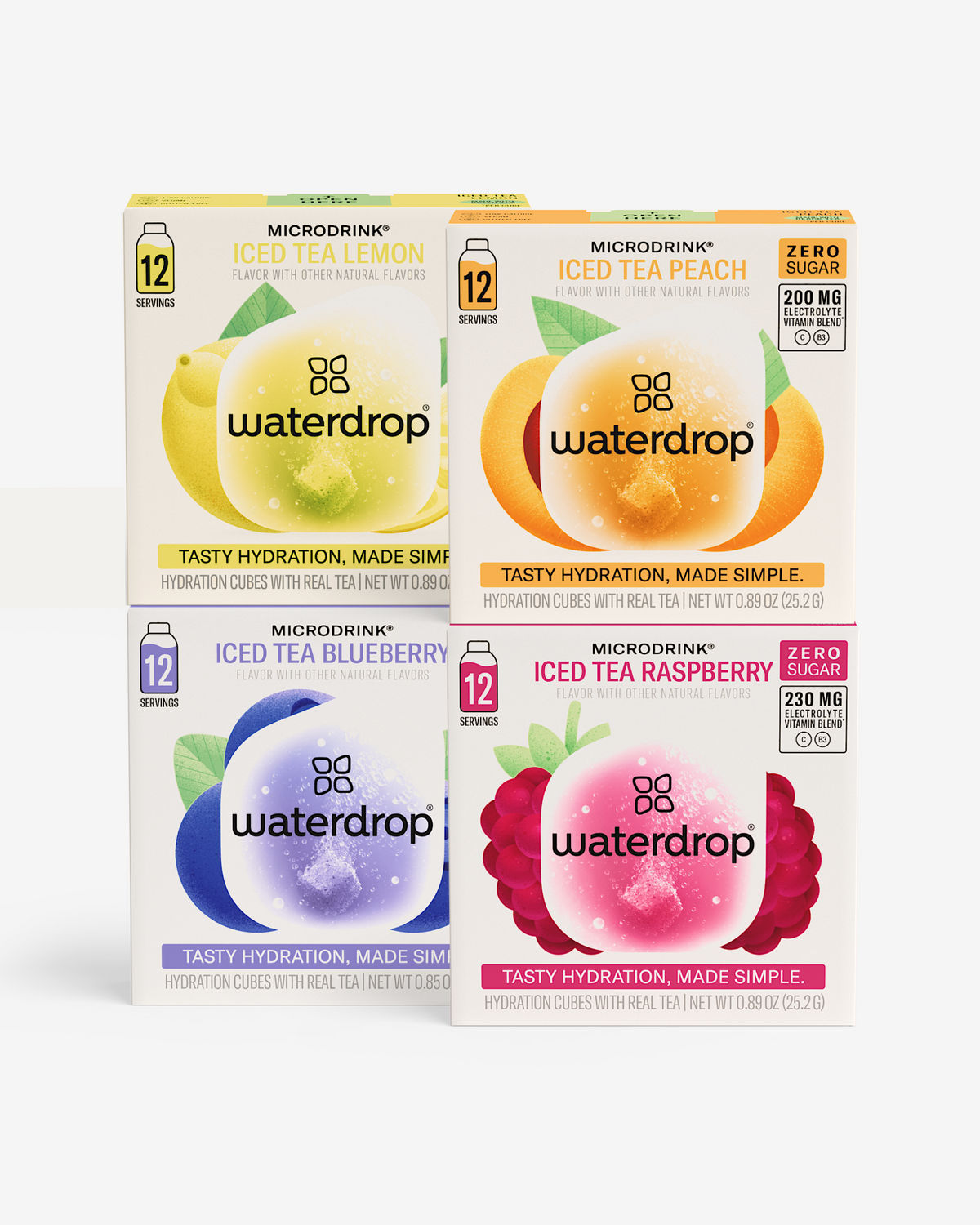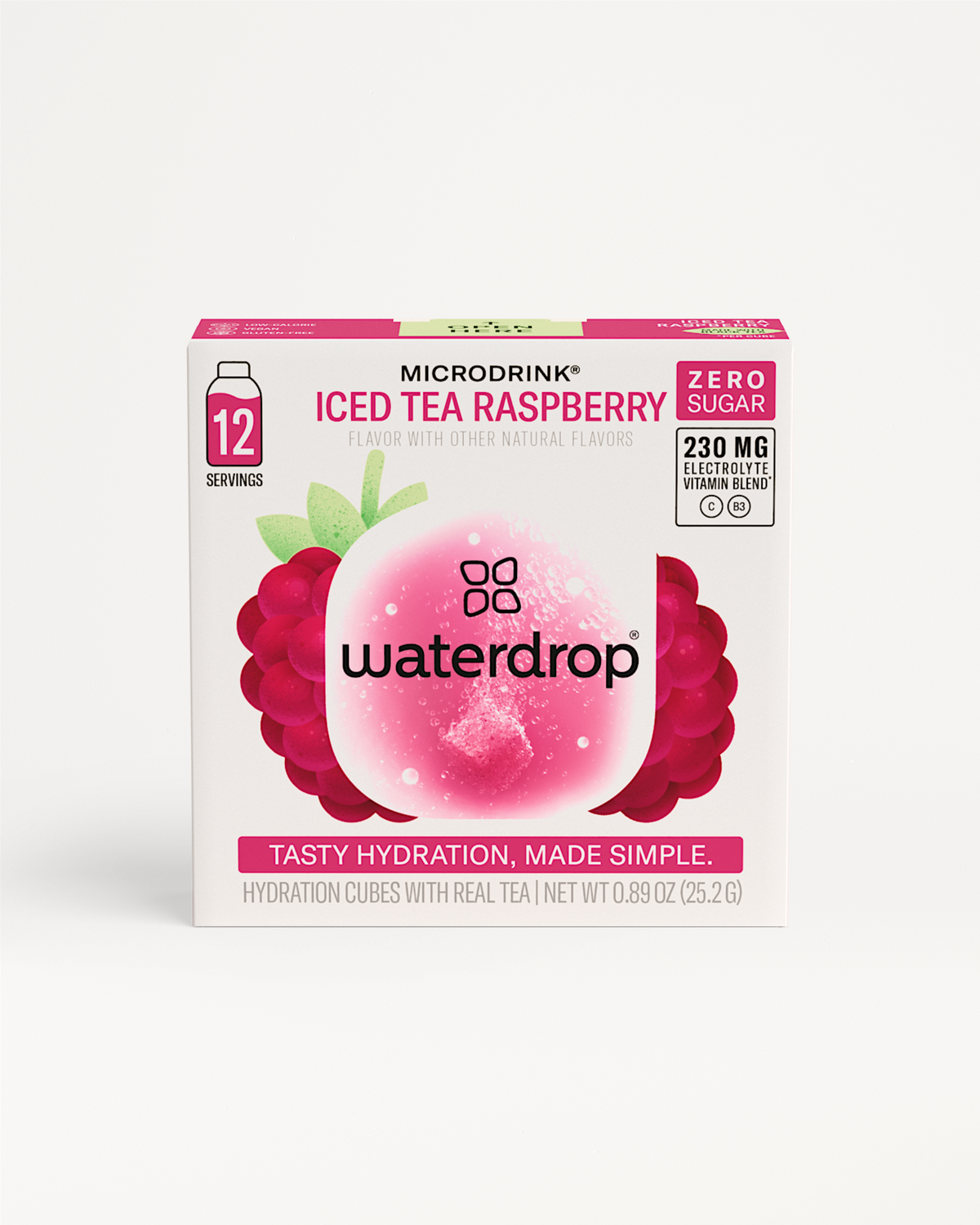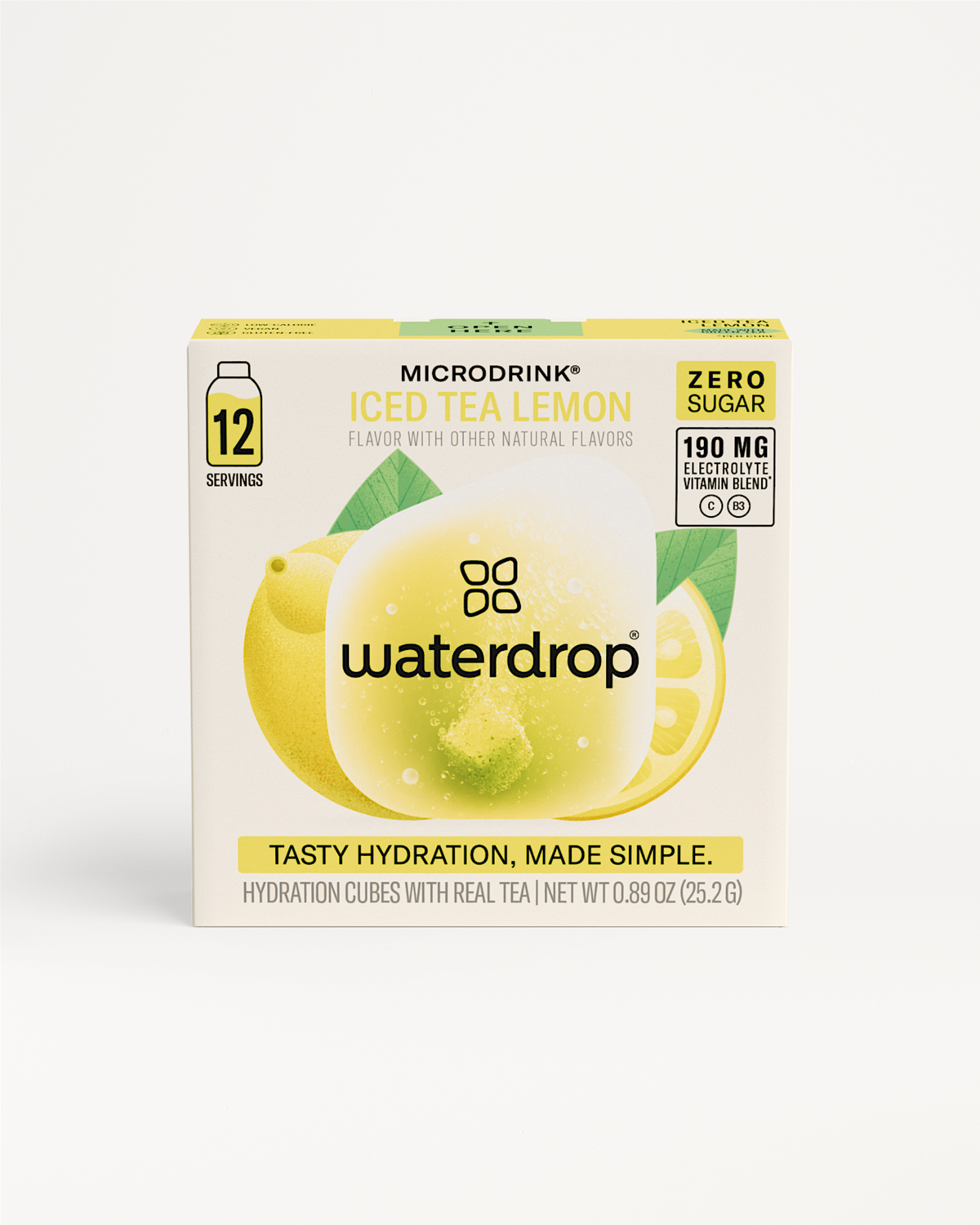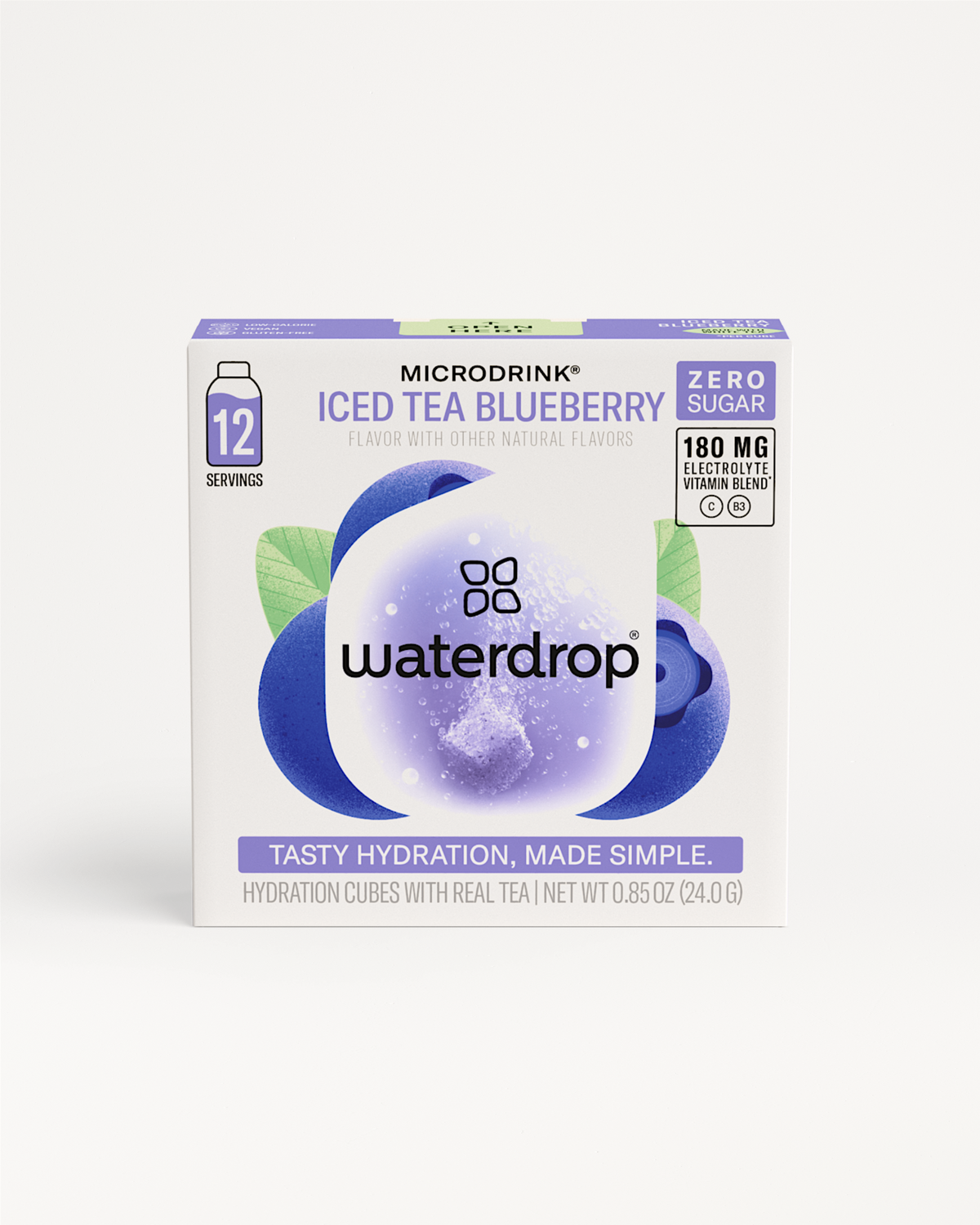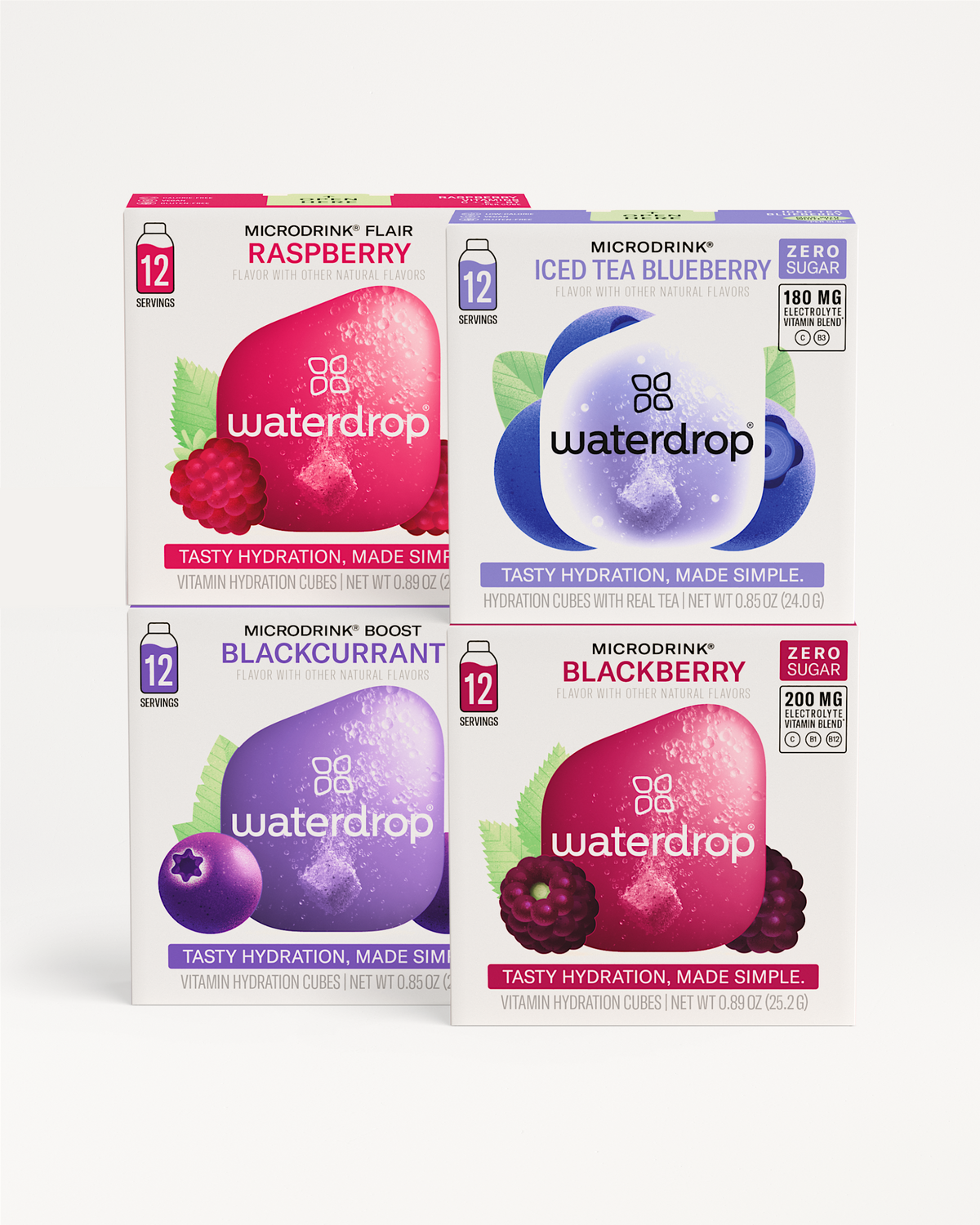Mirror, mirror on the wall, what’s the best tea of them all? Here at waterdrop®, we’re big fans of tea in general but if we were to make a list of our favorites, white tea is definitely on the list! Read on and let’s get this par-tea started!
What is white tea?
While most of you may think that white, black, green and oolong teas come from different plants, they actually originate from the same plant - camellia sinensis. The amount of oxidation is what sets them apart, with white tea being allowed to oxidize the least, followed by green, oolong and lastly, black tea being left to fully oxidize. In the production of white tea, the buds are harvested before the tea leaves open, and dried straightaway to stop the oxidation process.
What is white tea good for?
There are many benefits of drinking white tea. The catechins in white tea help to lower blood pressure, improve blood circulation and prevent heart diseases such as a heart attack and stroke. As white tea is the least processed, it also retains the most antioxidants of all the teas. These antioxidants are great for lowering cholesterol levels, specifically ‘bad’ LDL cholesterol. More on this below!
1. Antioxidative effect
2. Improving immune system
3. Promote weight loss
4. Improve heart health
5. Cancer prevention
6. Skin health
7. Dental Health
8. Insulin resistance
9. Digestion
1. Antioxidative effect
We’ve talked a lot about antioxidants at this point, but if you’re still not too sure how they benefit the body, this paragraph is for you. Antioxidants are agents that protect against free radicals, also known as harmful molecules created by oxidative stress in the body. These free radicals are linked to negative aging and other illnesses such as Alzheimer’s disease, diabetes and cancer. Due to its abundance in antioxidants, white tea is the most powerful amongst all teas when it comes to counteracting these radicals.
2. Improving immune system
On top of its antioxidant properties, white tea is also an effective immune booster with its natural antibacterial, antiviral and antifungal effects. Research has also shown that white tea is capable of restoring immune function of Langerhans cells – a key component of the immune system essential to detecting cancerous by-products. In the counteracting of damage from free radicals, white tea also helps to shield the body and prevent chronic infections with its anti-inflammatory properties.
3. Promote weight loss
Tea is frequently touted as a beverage that promotes weight loss. This happens via two ways: firstly, the catechins within help to boost metabolism and this then leads to your body breaking down fats more efficiently. Secondly, the caffeine within tea increases your daily energy consumption and this allows more calories to be burned in a day. Studies have shown that white tea in particular, helps to boost metabolism by an extra 4-5%, burning approximately 70-100 more calories daily. On top of all that, the polyphenols found within white tea help to break down fat and prevent new fat cells from forming. Talk about a drink that multea-tasks!
4. Improve heart health
As mentioned earlier on, the antioxidants in white tea help to lower blood pressure as well as the levels of bad LDL cholesterol in our body. This naturally helps to lower the risks of heart disease significantly, as high blood pressure and cholesterol make up two of the three key risk factors for heart disease (the third is smoking!). High levels of cholesterol especially, causes a build-up of fatty deposits within blood vessels and this increases the chances of someone suffering a heart attack amongst other heart diseases.
5. Cancer prevention
Besides restoring the immune function of Langerhans cells and subsequently, supporting the detection of cancerous by-products, studies have also shown that the bioactive ingredients of white tea help to inhibit the spread of cancer cells. Other studies have also shown that white tea is linked to helping destroy lung cancer cells, and stopping the growth/spread of colon cancer cells respectively. Of all the white tea benefits out there, this is a tea-rrific one to remember the next time you’re reaching out for a tea bag.
6. Skin health
As free radicals are believed to play a role in the skin-aging process, the fact that white tea contains a lot of antioxidants that fight against it, indirectly means it helps your skin stay young and brew-tea-ful! White tea has been known to block the enzymes that break down collagen and elastin so your skin stays supple and rejuvenated.
7. Dental Health
Thanks to its anti-inflammatory properties, drinking white tea helps to fight against bacteria (less cavities!) and prevent gum inflammation. White tea also contains fluoride and tannins which strengthen teeth and increase the teeth’s acid resistance respectively. Bonus: swapping coffee for white tea also means your teeth don’t get stained and you get the perfect pearly-white smile to go with your supple complexion.
8. Insulin resistance
Insulin resistance happens when cells in your muscles, fat, and liver don’t respond well to insulin and can’t take up glucose from your blood for energy. Your pancreas then produces more insulin, leading to your blood sugar levels going up. As polyphenols like the ones found in white tea helps to enhance the effects of insulin, prevent high blood sugar and lower your risk of insulin resistance overall, drinking more white tea can help prevent and relieve symptoms of diabetes i.e. polydipsia, high plasma glucose and reduced insulin secretion.
9. Digestion
Many people often turn to tea after eating a heavy/greasy meal as it helps relieve discomfort and aids digestion. Plus, food that isn’t digested also contributes to the formation of fat cells which, let's face it, nobody wants... If this is something that sounds good to you, know that white tea is especially effective at aiding digestion, so this ensures the food you eat is consumed by energy and not stored as fat – Sip, sip, hooray!
So, is white tea good for you?
If you’re still wondering about this at this point, then let us kick it off with a resounding YES! As white tea only contains a tiny amount of caffeine, you don’t even have to limit how much or even when to drink white tea. You can pretty much drink it anytime you want. With its anti-bacterial, anti-fungal, antioxidant and anti-inflammatory properties on top of that… If there is one tea you need to add to your cart now, it’s this one for sure!























